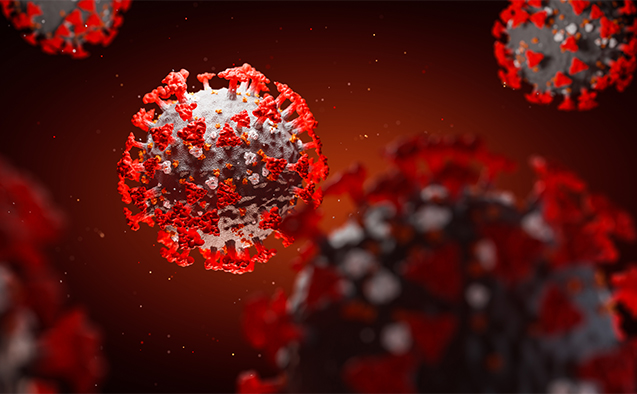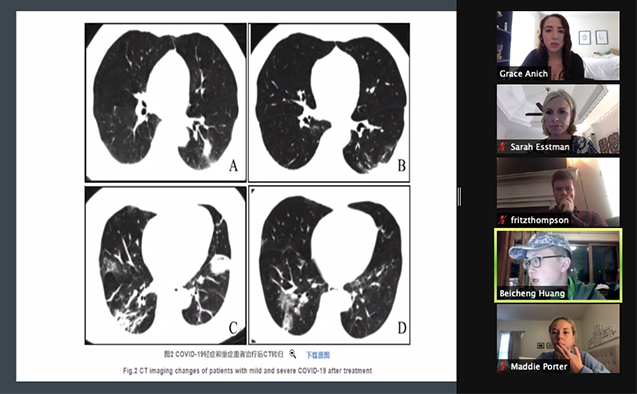A timely assignment: Wake students complete COVID-19 class project

As the total number of COVID-19 cases in the U.S. exceeds 15 million and cases surge to record levels in places around the world, understanding the pandemic and its ongoing impact remains critically important.
Students in biology professor Sarah McDonald Esstman’s virology class spent several weeks exploring COVID-related topics for a course project. Groups named the virologists, the physicians, the epidemiologists, the immunologists, the communicators and the policy makers – consisting of five or six students each – were responsible for creating 20-minute PowerPoint presentations.
Students presented their findings virtually just before the University let out for Thanksgiving.

Maddie Porter, a senior biology major, took on the policy maker perspective and studied the balance between health, economics, social and environmental impacts of COVID 19.
“We focused mainly on the U.S. but also pulled in different things we’ve been seeing globally,” Porter said. “For example, on the environmental impact we noted that there’s a large decrease in smog in some parts of the world like India, New Delhi and Los Angeles, because fewer people are driving to work. We talked about the state quarantine orders, the mask mandates and the declarations of emergency.”
Porter’s group examined non-medical impacts of the pandemic, including the Paycheck Protection Program and unemployment rates. She focused on mental health impacts and found a study released by the CDC that said in June the suicide ideation rates were disproportionate among young people aged 18-24, essential care workers and Hispanic and Black patients.

Sarah McDonald Esstman
Esstman, an expert on rotavirus, wanted her students to work on the project as a means of incorporating what they’re experiencing, because of the pandemic, with the virology concepts they discussed during the semester. She spent several years earlier in her career studying coronaviruses and the mechanisms of coronavirus replication.
“It was fun for me to sit and listen to what they put together,” Esstman said after the first day of presentations. “It was interesting to hear about the clinical management of the virus in the hospital from students in the physicians group. I felt like I was the student.”
Porter said the class has exceeded her expectations.
“Dr. Esstman is very well versed on many viruses, and her class has opened my eyes on how complex and evolutionary diverse viruses are and how they can impact our global food security, major food crops that we rely on and other things,” she said. “All of the biology behind it was eye-opening for me. This has definitely been my favorite class this semester.”
Porter acknowledges that being a college student in the midst of a global pandemic has been challenging and said working on the COVID-19 project made the virus even more real for her.
“It made me look at the pandemic in a different light because I got to understand the biology behind it and understand what was happening in people’s bodies,” she said. “Things that people were saying now have more meaning to me.”
The policy makers group also examined what the post-pandemic society will look like and concluded, among other things, that remote working will continue, travel will decrease – at least for a few years – and there will likely be major lasting impacts on poor and impoverished people.
“We were able to draw connections to one another’s subtopics which speaks to the interconnectedness of the multitude of effects COVID-19 has had on the earth and society,” said Porter, who is minoring in chemistry and environmental science. “Our group presented last and we ended with our predictions of how this virus is going to forever impact our world and society in the future.”
Members of the media that want to interview Esstman or Porter should contact media@wfu.edu.
Categories: Experiential Learning, Research & Discovery
Wake Forest News
336.758.5237
media@wfu.edu
Meet the News Team
Headlines
Wake Forest in the News
Wake Forest regularly appears in media outlets around the world.




